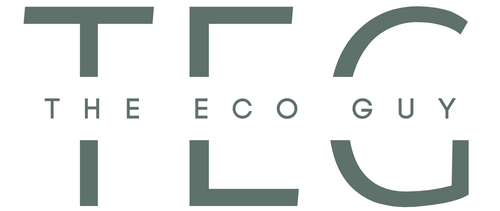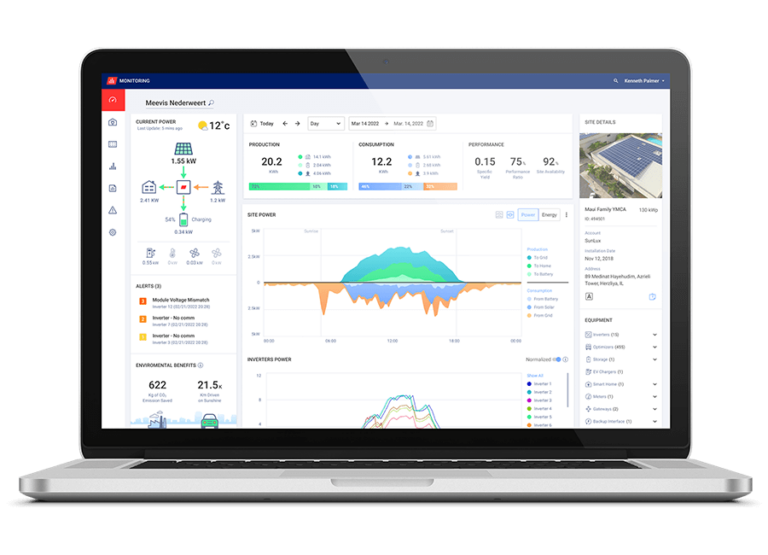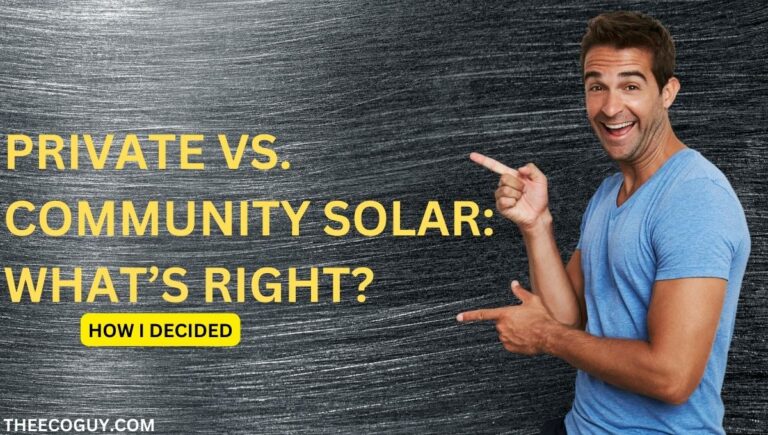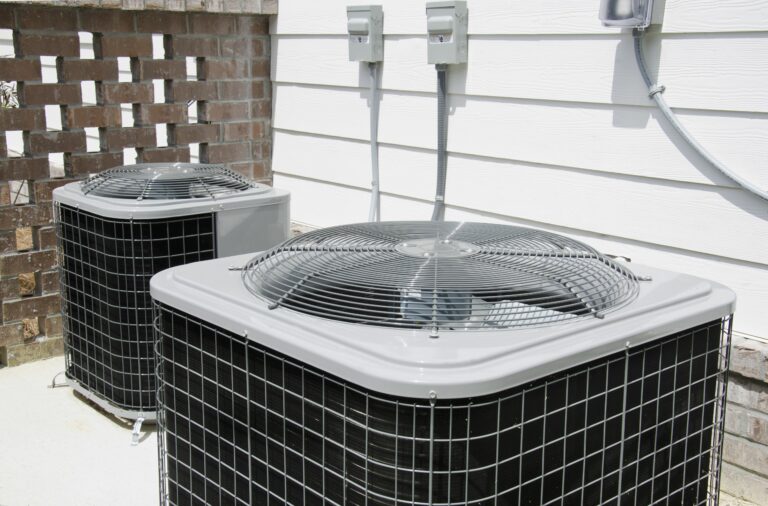What Factors Can Reduce the Reliability of a Solar System?
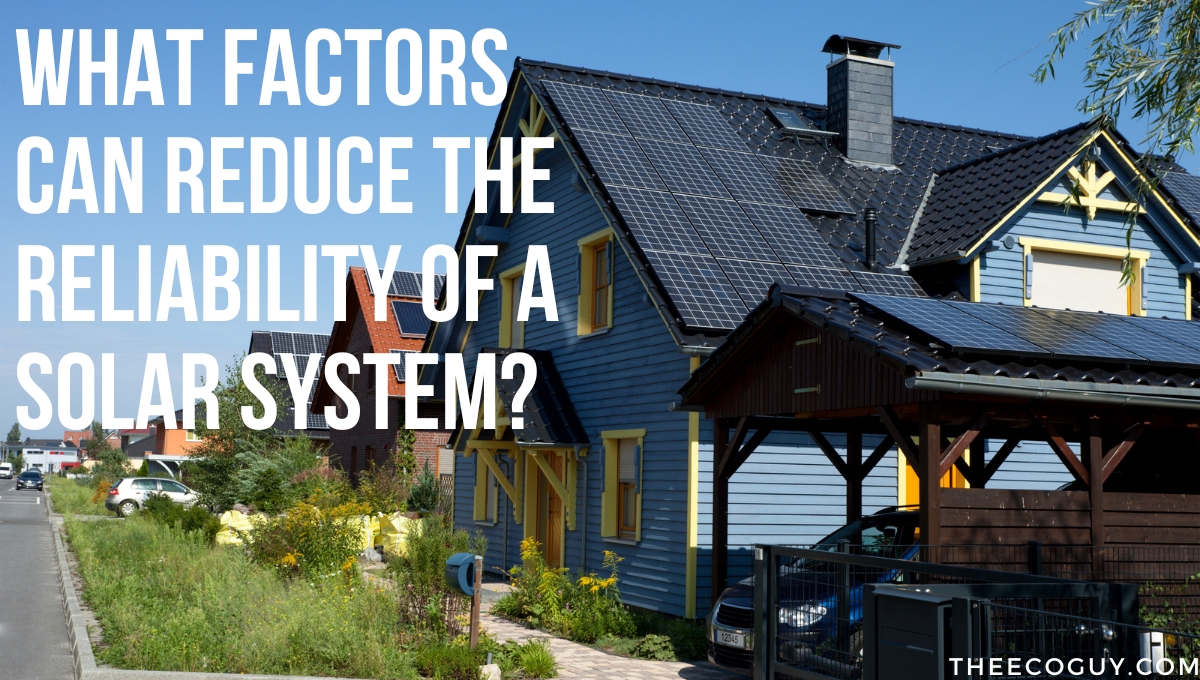
Are you curious as to what elements might reduce the dependability of your home solar system? Let’s look at some of the most common factors that can cause solar system reliability issues.
Factors that can reduce reliability include environmental, design, financial, and technological factors.
It isn’t easy to pinpoint the exact factor because it depends on your system type.
This article will explore some of the leading environmental, financial, design, and technological factors that can reduce the reliability of a solar system and ultimately affect its efficiency.
Environmental Factors
Temperature Variance
The first environmental factor is temperature variance. This is when the temperature of your solar system changes drastically over a short period. When the temperature of a solar panel increases or decreases too quickly, it can cause problems with its efficiency and performance.
Climate Conditions
The climate conditions in your area can also affect the reliability of a solar system. In addition, different climates will have other effects on the system’s performance. For example, a system in an area with frequent wind and rain may not be as reliable as one in a more temperate climate.
Humidity & Moisture
Humidity and moisture can also reduce the reliability of a solar system. High humidity levels can cause condensation on the panels, which decreases the system’s efficiency.
Sunlight Availability
Finally, the amount of available sunlight can affect the reliability of a solar system. If your area receives limited amounts of sunlight or lacks consistent sun exposure, it will be difficult for the system to generate power efficiently.
Design Factors
Incorrect System Design
The first design factor is an incorrect system design. If your system is not designed properly or well-suited for the environment, it can cause reliability problems.
Poor Installation Quality
The quality of the installation can also affect reliability. For example, poorly installed solar systems are more likely to experience issues like loose connections or incorrect wiring.
Inadequate Maintenance & Repair Strategies
The last design factor is inadequate maintenance and repair strategies. If your solar system isn’t regularly maintained and repaired, it can lead to reliability issues.
Incorrect Equipment
In addition, if the wrong equipment is selected for the system, it can reduce reliability. For example, choosing a solar panel with a lower wattage than necessary could result in reduced performance and efficiency.
Financial Factors
High Costs & Maintenance Fees
The first financial factor is high costs and maintenance fees. Solar systems can be expensive to install and maintain, affecting their reliability.
Lack of Financial Support
The second factor is a lack of financial support. Many countries offer incentives and subsidies for solar systems, but if they are unavailable in your area, it could reduce the system’s reliability.
Lack of Maintenance
Lack of maintenance is crucial when it comes to solar systems. Regular maintenance and repair of your system are vital for its long-term reliability.
Finally, if there are no subsidies or tax credits available for solar systems in your area, it could reduce the reliability of your system.
Technological Factors
Age & Capacity of Panels
The first technological factor is the age and capacity of your solar panels. Older or lower-capacity panels will not be able to generate as much power, thus reducing the reliability of the system.
Incorrectly Installed Equipment
Incorrect installation of equipment can also reduce reliability. If components are installed incorrectly, it could lead to problems with efficiency and power output.
Inadequate Connections & Wiring
Inadequate connections and wiring in a solar system can reduce reliability. In addition, if the connections and wiring are not installed properly, it could affect the performance of your system.
Inverter Issues & Malfunctions
The last technological factor is inverter issues and malfunctions. The inverter is the component that converts DC power from the solar panels into AC power for household use. If it malfunctions, it can reduce the reliability of the system.
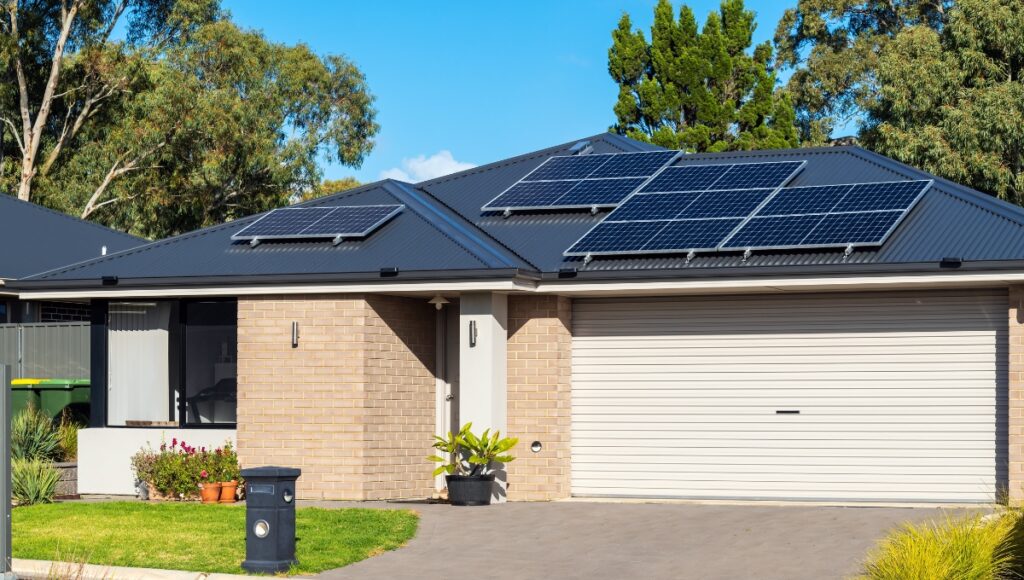
Best Ways to Ensure Reliability and Long-Term Performance
The best way to ensure your solar system’s long-term reliable performance is to ensure it is designed, installed, and maintained correctly. Proper design involves selecting the right equipment for your environment and energy needs, such as panels with a suitable wattage rating for the area’s available sunlight.
During installation, all electrical connections and wiring should be properly installed and sealed to prevent water damage. Proper maintenance is also essential, as regular cleaning, inspection, and replacement of components can help ensure the system’s reliability over time.
What Type of Maintenance Is Needed for a Solar System?
Regular maintenance is essential to ensure a solar system’s long-term reliability and performance. Proper care involves cleaning panels, inspecting wiring and connections, and replacing components.
This helps keep the system running optimally and prevents problems from arising in the future. However, different types of maintenance are required for system parts, such as solar panels, inverters, batteries, wiring, and other components. Therefore, it is essential to understand what type of maintenance each part requires to maintain optimal performance over time.
Solar panels are one of the most critical components of a solar system and require regular maintenance to ensure optimal performance. Cleaning is essential for keeping the panels free from dust and debris that can block sunlight, reduce efficiency, and shorten their lifespan. It should be done regularly, ideally every 3 to 4 months or as needed depending on local conditions.
Inverters should also be inspected and cleaned periodically to ensure they work correctly.
Finally, other components, such as fuses, switches, and relays, should be inspected periodically to ensure they function correctly.
Is It Important to Use Components That Are Rated for the Environment?
Yes, it is essential to use components rated for your local environment. The local climate and weather conditions can affect the performance of solar system components, so it is important to use features designed for your specific environment.
For example, you should use components rated for harsh weather conditions if you live in an area with frequent high winds or hail storms. This will help protect your system from damage and ensure optimal performance over time.
What Advancements in Technology Have Been Made That Help Reduce Costs and Improve Operations?
In recent years, there have been significant advancements in technology that help reduce costs and improve operations for solar systems. These include:
- High-efficiency solar panels: Solar panels are now more efficient than ever and can capture more sunlight to convert into energy. This helps to reduce the number of panels needed for a given system, which reduces overall costs.
- Smart inverters: Smart inverters use advanced algorithms to optimize the efficiency and performance of a solar system, resulting in more energy production over time.
- Battery technology: New battery technologies, such as lithium-ion batteries, are now available that provide improved storage and longevity while taking up less space than traditional lead-acid batteries. This helps reduce costs and improve overall system performance.
As technology advances, more efficient solar systems become increasingly cost-effective, making them a viable option for many people.
Are There Any Safety Considerations When Installing or Operating a Solar System?
Lastly, it is essential to be aware of safety considerations when installing and operating a solar system. Solar systems generate electricity, so using proper safety precautions is necessary.
When installing the system, ensure all electrical wiring is properly connected and sealed to prevent water damage. It is also essential to check that all components are rated for use in your local environment and meet all relevant safety standards.
When operating the system, use caution when working near the solar panels and wiring. Wear proper personal protective equipment to protect yourself from potential hazards. Finally, be aware of any local fire codes related to solar systems and follow them at all times to ensure safety.
Final Thoughts
Overall, installing and maintaining a solar system can be complex. To ensure optimal performance over time, it is essential to use components rated for your local environment and perform regular maintenance on the panels, inverters, batteries, wiring, and other features.
Additionally, advancements in technology have made it easier than ever to reduce costs while improving the operations of a solar system.
Finally, safety should always come first; take necessary precautions when installing or operating a solar system by following all relevant fire codes and wearing proper personal protective equipment.
With these tips in mind, you’ll be able to ensure that your solar system runs smoothly for years to come!
